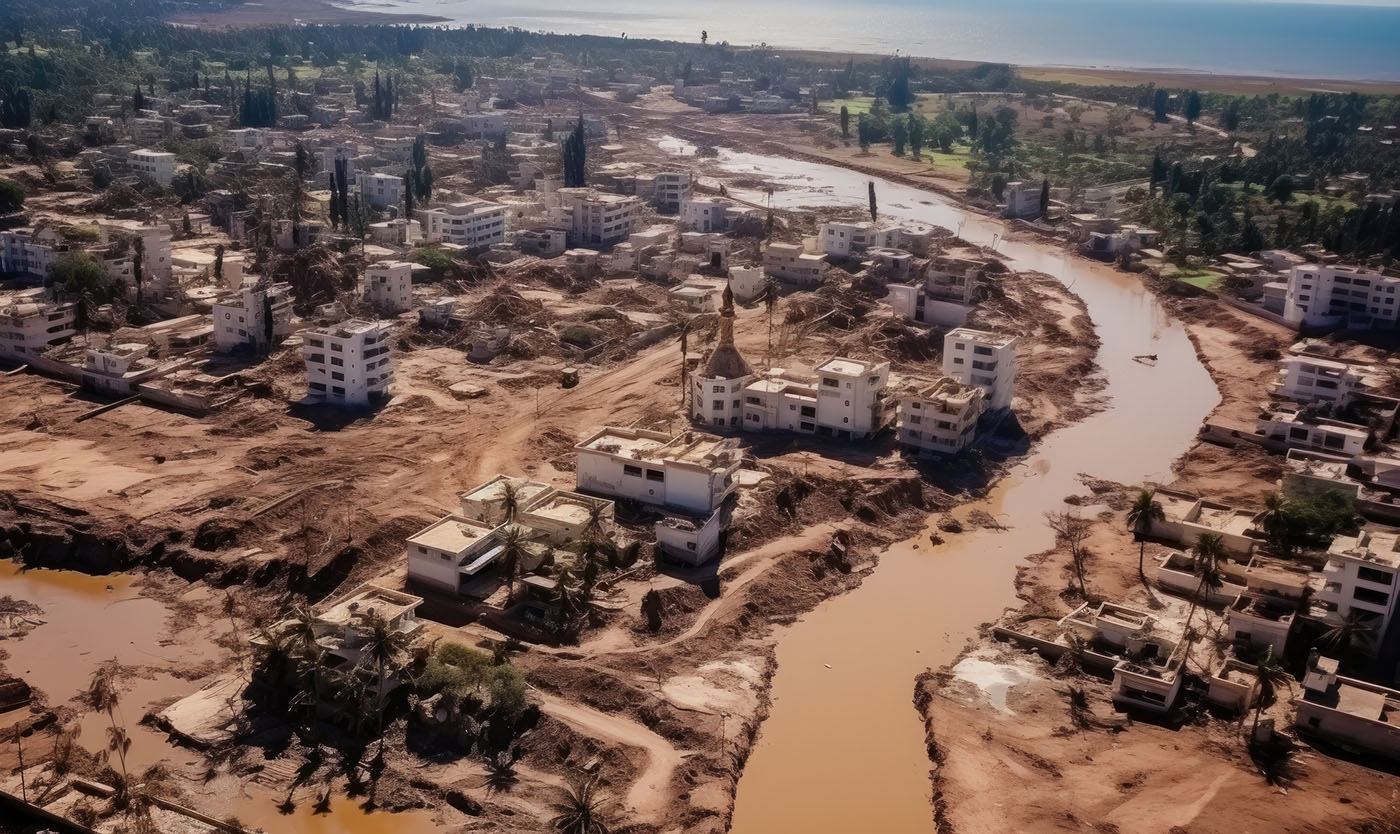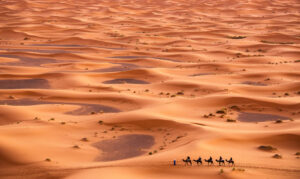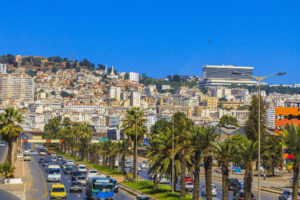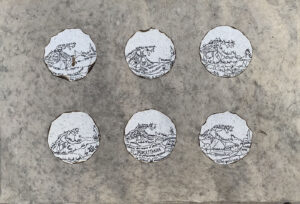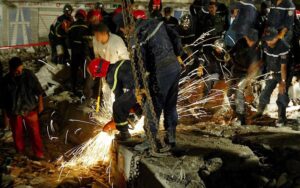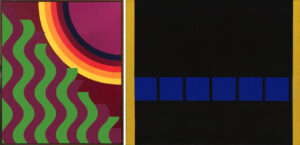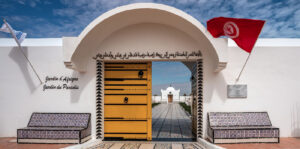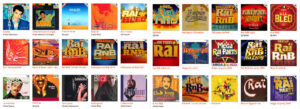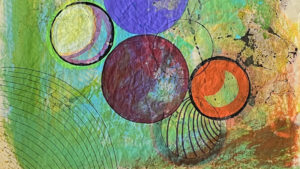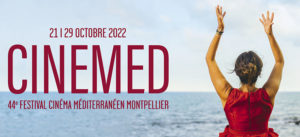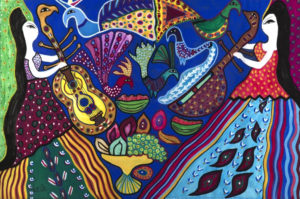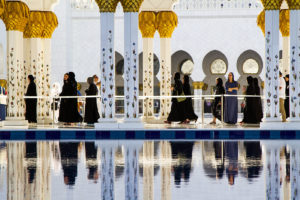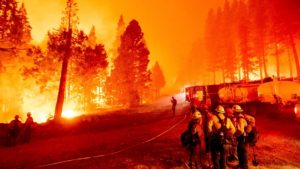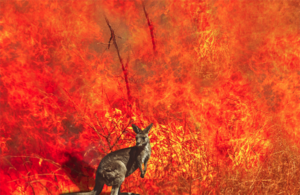The poor foundations of Derna’s infrastructure and the lack of preparedness for disaster response stems not only from the political unrest following the 2011 Arab Spring, as most journalists and analysts covering the story have suggested. The story of Derna’s long-standing vulnerabilities actually begins in the era of former Libyan President Muammar Gaddafi.
Lama Elsharif
When I think of my childhood years in Benghazi, my mind often drifts to family road trips to the Jabal al-Akhdar (Green Mountain) area in the northeastern region of Libya. On those perfect sunny days, we would visit quaint cities like al-Marj, Shahhat, al-Baydah, Soussa, and Derna. Every scene from our trip seemed like vivid illustrations from a storybook: the breathtaking coastal views stretching from Benghazi to al-Marj, the ancient ruins in Shahhat, and the peaceful cadence of daily life in Soussa and Derna. These cherished memories now stand in stark contrast to the devastation wrought by Storm Daniel in the early hours of September 11. The crisis ensued when two dams in Derna collapsed during the storm, unleashing a massive flood through the city, leveling buildings and sweeping entire residential blocks into the sea. While several cities along the eastern coast suffered damage from the storm, Derna was devastated the most. News from Derna has been particularly gut-wrenching: the once-vibrant city I joyfully roamed as a child now sits mostly underwater, its heartbeat silenced.
In search of solace and news, I reached out to my childhood friends in Benghazi, many of whom have ties to Derna and its neighboring towns. Their stories were heavy with emotion. One friend recounted the heartbreak of losing entire families — uncles, cousins, in-laws, and close friends — all gone in an instant. Another spoke of the agony of uncertainty surrounding those still missing. The grief is palpable, the sorrow, immeasurable. Even those untouched by personal loss expressed deep emotional scars from witnessing such vast tragedy and destruction.
The raw numbers beneath that pain reflect the sheer scale of this disaster. Derna, a city that once bustled with around 125,000 inhabitants, now mourns the loss of over 11,000 lives, with nearly 10,000 individuals still missing, and around 30,000 stranded, desperately needing assistance. Today, significant portions of this coastal city lie submerged, its familiar landmarks, roads, and structures washed away or buried. Local official, Hichem Abu Chkiouat, portrayed the harrowing scene to Reuters, “Everywhere you look, there are bodies – from the sea to the valley and beneath collapsed buildings.” He emphasized the magnitude of devastation, declaring “I am not exaggerating when I say that a quarter of the city has disappeared!”
Sadly, the stories arising from this tragedy echo the accounts I have encountered in my work on 18th century North African history, where numerous environmental calamities wreaked havoc, occasionally annihilating entire communities.
Environmental crises like drought, disease outbreaks, earthquakes, and floods have long been a hallmark of the North African landscape. However, the late 18th and early 19th centuries stand out as exceptionally trying times as they saw a significant increase in such adversities. From 1776 to 1822, the Ottoman-controlled provinces in North Africa, Tripoli (modern-day Libya), Tunis (modern-day Tunisia), and Algiers (modern-day Algeria), suffered from substantial economic setbacks brought on by continuous cycles of heightened environmental challenges.
While prolonged droughts were the norm in 18th century North Africa, the less-frequent episodes of excessive rain often caused equal, if not greater, devastation. In early April 1778, for example, a particularly severe episode of heavy rain inundated the northern region of Algiers, demolishing houses and trapping entire families under the rubble, wiping out nearly half the city. The floods that day inflicted further damage to crops, markets and stored grain. They also disrupted trade routes, hindering the delivery of essential goods to cities in dire need of aid. These events instantly triggered acute food shortages, drove up food prices, and instigated widespread famine. Whether due to malnutrition and weakened resistance to disease or exposure to contamination from decaying corpses, this series of catastrophes ultimately led to epidemic outbreaks, introducing a new wave of crisis that significantly amplified the death toll.
The deluge that struck Derna on September 11th bears haunting similarities to the 1778 flood in Algiers, illustrating how forces of nature in the region have shaped human experiences in comparable ways across centuries. Critical infrastructure like roads and bridges suffered immense damage, making the delivery of aid to the distressed populace even more challenging. Media channels emphasized the difficulties faced by rescue teams in extracting decomposed bodies from beneath muddy wreckage and from the depths of the sea. Numerous videos also surfaced on social media, featuring family members and medical aid workers detailing the hurdles they were encountering in finding and assisting stranded families. Amid this chaos, Derna’s residents grappled with shortages of drinking water, limited food supplies, and soaring prices. A segment on Aljazeera captured a Libyan police officer admonishing grocery store owners for exploiting the crisis through price gouging.
The aftermath of the disaster extended far beyond immediate devastation. Derna’s healthcare infrastructure, ill-equipped for large scale emergencies, faced intense pressure. With the city’s main hospital, al-Harish, long dormant due to unfinished renovations, and the Makhili Medical Center inoperative from flood damages, only al-Wahdah Hospital and al-Sheiha Medical Center remained operational. So dire was the situation that local officials converted a five-bedroom villa into a makeshift hospital. Additionally, field hospitals sprang up in Derna and neighboring cities most affected by the disaster. These infrastructural challenges, combined with critical shortages in medical supplies, magnified the repercussions of the disaster.
Two weeks after the disaster, humanitarian agencies expressed deep concern over mounting health threats. Already, contaminated water sources had affected 243 individuals, leading to a surge in hospital admissions. Not long afterwards, Libyan health officials reported the detection of bacterial contamination in both ground and sea water. Stagnant water pools, created by the floods, particularly in areas like Derna, al-Marj, and Soussa, have become breeding grounds for mosquitos, raising the dangers of waterborne diseases such as malaria. Adding to the gravity of the situation, widely-shared videos depict survivors, without protective gear, digging through wreckage in search of their loved ones. These harrowing visuals underscore the imminent risk of potential disease outbreaks from unsanitary conditions. Moreover, warnings from humanitarian agencies point to growing threats of dehydration and malnutrition. Such conditions could weaken the immune system of the surviving population, rendering them more susceptible to diseases. All these stories and various accounts, when pieced together, unveil a sequence of hardships — from flood damages to water scarcity, food shortages, price inflation, malnutrition, and disease outbreaks. This sequence highlights a persistent pattern of environmental challenges that have plagued North Africa from its historical past up to the present day.
History reveals that catastrophes go beyond mere confrontations with nature. They often unmask latent socio-political vulnerabilities in the affected regions, a reality starkly evident in 18th century Tripoli. When Ali al-Qaramanli Pasha assumed power in 1754, Tripoli was already battling persistent droughts and famines throughout its regions. Under al-Qaramanli’s rule, however, these issues deepened, largely due to his questionable decisions in governance. He misused treasury resources; rather than allocating funds to tackle the ongoing crises, he poured significant capital into financing his troops to quell tribal uprisings and later to combat rivals. In the 1770s, droughts and famines continued to plague the province relentlessly, accompanied by undying tribal conflicts. These factors left Tripoli unprepared for further adversities. This precarious state came to the fore during the Great Famine of 1776, which, unlike previous famine events, scarred the entire North African region. Even though al-Qaramanli scrambled to import grain to stave off hunger, the famine’s effects were overwhelming. The exodus of 10,000 people to Tunis in 1780 stood as a testament to the severity of the crisis.
It took several years for Tripoli to recover.
The immediate urgency of the floods may have faded from the headlines, but the repercussions of this disaster, as history has proven, still continue and will reverberate through the lives of Libyans for many years ahead.
Derna’s current plight, with its fragile infrastructure and political disorder, in many ways echoes what Tripoli endured under al-Qaramanli’s leadership. The poor foundations of Derna’s infrastructure and the lack of preparedness for disaster response stems not only from the political unrest following the 2011 Arab Spring, as most journalists and analysts covering the story have suggested. The story of Derna’s long-standing vulnerabilities actually begins in the era of former Libyan President Muammar Gaddafi, whose governance spanned from 1969 to 2011. Experts have noted Gaddafi’s preferential treatment toward tribes in and around Tripoli, often sidelining the eastern regions despite their rich oil reserves. Claire Spencer, who was leading the Middle East program at Chatham House in London in 2011, conveyed to Reuters the persistent grievances of Eastern Libya’s populations regarding the unequal distribution of wealth and resources. She emphasized the dominant presence of Gaddafi’s tribal alliances in Tripoli, which channeled substantial investments into the capital, often sideling Benghazi and other cities in the east. These funds facilitated infrastructure development and sustained maintenance in and around Tripoli, while areas from Benghazi to the Green Mountains and Derna — which emerged as strongholds for anti-Gaddafi rebels since the 1970s — faced decades of systematic neglect and economic exclusion as a form of punishment for their continuous defiance.
Amid the hardships confronting Libyans today, powerful stories of resilience and unity are emerging. Just a week after the catastrophic deluge, the streets reverberated with the voices of protestors, hundreds strong, expressing their frustration toward the authorities and calling for accountability and decisive action. The intensity of these demonstrations reached its peak when angry protestors set fire to the residence of Derna’s mayor, Abdulmenam al-Ghaithi. The continuous wave of protests eventually culminated in the arrest of al-Ghaithi and eight other officials.
The immediate urgency of the floods may have faded from the headlines, but the repercussions of this disaster, as history has proven, still continue and will reverberate through the lives of Libyans for many years ahead. As the aftermath of Storm Daniel continues to unfold in the affected region in east Libya, efforts persist in locating the missing and aiding the displaced. Many of those who lost their homes to the floods relocated to other cities across Libya, driven by the high health risks emerging in Derna.
Heartfelt pleas from survivors, who have borne the unimaginable weight of lost loved ones, echoed through social media, urging Derna’s fleeing inhabitants to return. One bereaved father’s words stand out, “I lost my wife and my two daughters, but I won’t abandon the city that holds their memories.” He implored, in tears, for a collective effort to rebuild Derna as a tribute to all those who perished. Now, fresh footage is emerging daily, chronicling the determination of Derna’s people: communities uniting, removing debris, and cleaning streets, taking the first steps of building a rejuvenated Derna. Rumors have been circulating about rebuilding a “New Derna” adjacent to the afflicted old city, but such plans remain elusive and unconfirmed.
Most importantly, as the crisis unfolds, a broader narrative of hope emerges on the national stage. Derna’s harrowing experience served as a catalyst for unity, bridging divides in a nation scarred by decades-long conflict and division. That such a calamity could prompt unprecedented collaboration between the traditionally rival administrations in the east and the west speaks volumes. Moving footage showcased eastern Libyans warmly welcoming and wholeheartedly embracing their western brethren. These moments, born out of adversity, illuminate a path toward unity. History has shown us that internal conflicts have magnified the destructive impacts of environmental calamities tenfold. Yet, in unity, there lies the inherent strength to weather any adversity, be it political or environmental. So hopefully, with this renewed sense of solidarity, Libya stands poised to face future challenges with newfound resilience.



